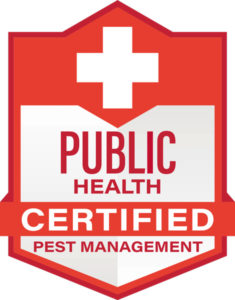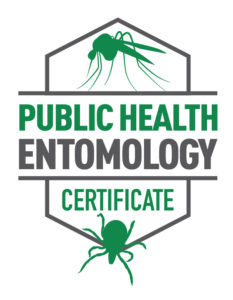Rolling out its program during National Pest Management Month, the National Pest Management Association (NPMA) has unveiled a suite of public health training exams for pest control companies looking to earn the newly introduced QualityPro Public Health service certification.
Exam creation was overseen by a task force of representatives from the NPMA, the Centers for Disease Control and Prevention, the American Mosquito Control Association, the Entomological Society of America, the National Environmental Health Association, a vector control district, and five pest control companies. A core exam covers more than 30 public health pests and vector management topics. Two specialty exams are also available for rodents and mosquitoes.
These exams are made available at no cost to all companies applied for or maintaining QualityPro accreditation. For more information, visit NPMAQualityPro.org.
PETTIS BECOMES PHE
In related news, the Entomological Society of America (ESA) has announced the world’s first public health entomologist certificate holder: Shawn Pettis, ACE, PHE. Conferred to Pettis, general service manager of Dominion Pest Control, Lancaster, Pa., in February, the certificate acknowledges that the holder “studied for and passed a rigorous exam covering insects and the diseases they vector, as well as principals of Integrated Pest Management. They represent a dedicated subset of pest management and vector control professionals. In addition to the exam, certificate holders are expected to adhere to a Code of Ethics.”
The ESA launched the new Public Health Entomology (PHE) certificate earlier this year. The certificate provides an opportunity for those who work with pests that pose a health risk; either by being a vector for disease or other adverse health risks. The PHE certificate is endorsed by and was developed in conjunction with the American Mosquito Control Association.
In an interview with PMP, Pettis notes that he had been studying for his associate certified entomologist (ACE) ranking for nearly seven months before he heard about the PHE exam. With the testing just a few weeks away, he decided to go for both certificates.
“The ACE study guide from the ESA was no doubt instrumental in achieving the PHE,” he says. “I passed the ACE on Feb. 14, and as soon as the test was over, I went home and crammed for one week and took the PHE on Feb. 21. I wanted to focus on the ACE, so I had not switched to studying for the PHE until after the ACE test was complete.”
In addition to the ACE information, Pettis explains, the PHE requires “study material of medical entomology and in-depth biology research of all biting, stinging, vectoring and medical concerning pests. I would strongly recommend studying for the ACE first, as the information on each pest is a bit more broad, while the PHE covers very specific biology questions about pests covered on the ACE.”
Pettis says he used the ACE study guide and the NPMA Field Guide, but that an official study guide is said to be in the works for the PHE exam. On May 4, he will be interviewed by industry YouTube channel “The PestPosse” alongside Willet Hossfeld, ESA’s certification programs manager. Pettis already appeared on the show on April 6 with his dad, Gregory Pettis, and PMP columnist and Hall of Famer Greg Baumann, Nisus Corp.
The younger Pettis cautions that there is no correlation with the PHE designation and COVID-19, however, because there has yet to be any evidence that the virus is vectored to or from insects. Still, because public health is going to be at the forefront of the public mindset for a long time to come, he notes that the program is timely.
“I believe that, in showing the public and governing officials our impact on medical importance, we could slow the ban of pesticides that prohibit PMPs from continuing public health services,” he adds. “The PHE certificate test covers not only vector pests like mosquitoes and ticks, it also covers structural household pests that may or may not transmit disease, but can still cause other health-related issues. I believe this is a very practical certificate for PMPs, treating both indoors and out, to achieve.”


Leave A Comment